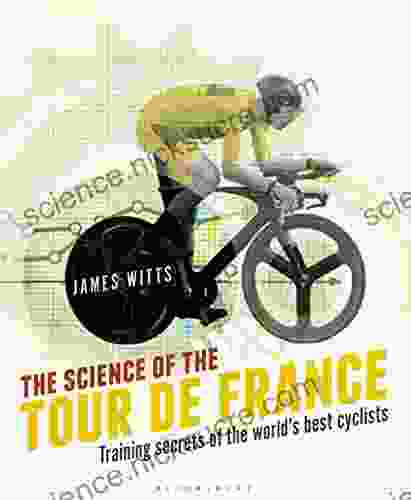The Science of the Tour de France: A Journey into Physiological Endeavors

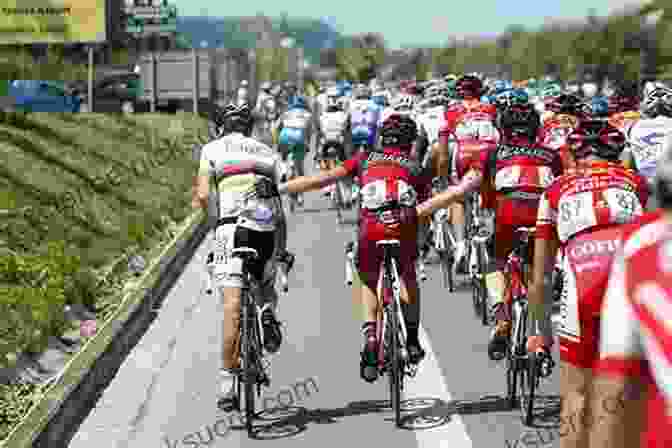
4.5 out of 5
| Language | : | English |
| File size | : | 104195 KB |
| Text-to-Speech | : | Enabled |
| Screen Reader | : | Supported |
| Enhanced typesetting | : | Enabled |
| Word Wise | : | Enabled |
| Print length | : | 319 pages |
The Tour de France, an annual cycling race covering approximately 2,200 miles (3,500 kilometers) over the course of 21 stages, stands as a testament to human endurance and athletic prowess. It is a grueling test not only of physical strength but also of mental fortitude, as riders push their bodies to the absolute limit.
Behind the spectacle of the race lies a fascinating interplay of science, strategy, and technology. In this article, we embark on a journey to unravel the scientific underpinnings of the Tour de France, exploring the physiological adaptations, nutritional strategies, and technological advancements that empower cyclists to conquer this iconic challenge.
Physiological Adaptations: The Human Body Transformed
The Tour de France demands extraordinary physical capabilities, and riders undergo remarkable physiological adaptations to meet these demands. Over the course of the race, their bodies undergo a series of transformations that enhance their ability to sustain prolonged and intense exercise.
* Increased Red Blood Cell Count: Riders experience an increase in red blood cell production, which enhances their oxygen-carrying capacity. This adaptation allows them to deliver more oxygen to their muscles, improving their endurance and reducing fatigue.
* Enhanced Heart Function: The heart of a Tour de France rider adapts to the relentless demands of the race, becoming stronger and more efficient. This increased cardiac capacity enables them to pump more blood and oxygen to their muscles, supporting their sustained efforts.
* Improved Mitochondria Function: Mitochondria, the energy powerhouses of cells, undergo significant adaptations during the Tour. Riders develop more and larger mitochondria, increasing their ability to generate energy from carbohydrates and fats. This enhanced mitochondrial function sustains their high-intensity efforts throughout the race.
* Increased Capillary Density: Tour de France riders exhibit an increased density of capillaries, tiny blood vessels that deliver oxygen and nutrients to muscles. This adaptation improves the delivery of oxygen to muscle fibers, further enhancing endurance and reducing fatigue.
Nutritional Strategies: Fueling for the Extreme
Nutrition plays a crucial role in the Tour de France, as riders must consume vast amounts of calories to fuel their extraordinary efforts. Their diets are meticulously planned to provide the necessary energy, hydration, and recovery nutrients.
* High-Carbohydrate Intake: Carbohydrates serve as the primary fuel source for cyclists during the race. Riders consume large quantities of pasta, rice, bread, and other carbohydrate-rich foods to replenish their glycogen stores, which are essential for maintaining high-intensity exercise.
* Adequate Protein Intake: Protein is crucial for muscle repair and recovery. Riders consume sufficient protein to support muscle growth and regeneration, ensuring their bodies can withstand the daily demands of the race.
* Hydration Management: Staying hydrated is paramount during the Tour de France. Riders consume large amounts of fluids, including water, sports drinks, and electrolyte solutions, to prevent dehydration and maintain optimal bodily function.
* Micronutrient Supplementation: Riders often supplement their diets with vitamins, minerals, and antioxidants to ensure they meet their daily nutritional requirements and support their immune systems.
Technological Advancements: Engineering for Speed
Technological advancements have played a significant role in shaping the Tour de France, helping riders to push the limits of human performance.
* Aerodynamic Bikes: Modern racing bikes are meticulously designed to minimize wind resistance. Advanced materials and aerodynamic shapes reduce drag, allowing riders to conserve energy and maintain higher speeds.
* Lightweight Components: Every ounce counts in the Tour de France, and riders use lightweight components to reduce the overall weight of their bikes. This reduction in weight improves acceleration and hill-climbing abilities.
* Advanced Gear Systems: The ability to change gears quickly and efficiently is essential for riders to navigate the Tour's varied terrain. Sophisticated gear systems allow them to adjust their cadence and maintain optimal power output.
* Performance-Tracking Devices: Riders use a variety of performance-tracking devices to monitor their physiological parameters, such as heart rate, power output, and cadence. This data helps them optimize their training and race strategies.
Mental Fortitude: The Power of the Mind
Beyond the physical and technological aspects, the Tour de France also demands immense mental fortitude from its participants. Riders face relentless challenges, including exhaustion, pain, and isolation.
* Mental Toughness: Tour de France riders possess extraordinary mental toughness, enabling them to overcome adversity and push through moments of doubt and fatigue. They develop coping mechanisms and strategies to stay focused and motivated throughout the race.
* Sports Psychology: Many riders work with sports psychologists to enhance their mental resilience and performance. These professionals provide techniques for stress management, visualization, and positive self-talk, which can help riders stay mentally strong and navigate the challenges of the race.
The Tour de France is not merely a cycling race; it is a scientific endeavor that pushes the boundaries of human physiology and endurance. Through a combination of physiological adaptations, nutritional strategies, and technological advancements, riders are able to conquer this grueling challenge. But beyond the science, it is the unwavering determination and mental fortitude of the riders that truly make the Tour de France an extraordinary spectacle of human achievement.
4.5 out of 5
| Language | : | English |
| File size | : | 104195 KB |
| Text-to-Speech | : | Enabled |
| Screen Reader | : | Supported |
| Enhanced typesetting | : | Enabled |
| Word Wise | : | Enabled |
| Print length | : | 319 pages |
Do you want to contribute by writing guest posts on this blog?
Please contact us and send us a resume of previous articles that you have written.
 Fiction
Fiction Non Fiction
Non Fiction Romance
Romance Mystery
Mystery Thriller
Thriller SciFi
SciFi Fantasy
Fantasy Horror
Horror Biography
Biography Selfhelp
Selfhelp Business
Business History
History Classics
Classics Poetry
Poetry Childrens
Childrens Young Adult
Young Adult Educational
Educational Cooking
Cooking Travel
Travel Lifestyle
Lifestyle Spirituality
Spirituality Health
Health Fitness
Fitness Technology
Technology Science
Science Arts
Arts Crafts
Crafts DIY
DIY Gardening
Gardening Petcare
Petcare Beata Bliss Lewis Md
Beata Bliss Lewis Md Leif K Karlsen
Leif K Karlsen Conor Daly
Conor Daly Alan Watts
Alan Watts Alan R Hall
Alan R Hall Dennis Jarecke
Dennis Jarecke Ilan Dvir
Ilan Dvir Ann Hagedorn
Ann Hagedorn J R Haseloff
J R Haseloff Skeleton Steve
Skeleton Steve Noha Mellor
Noha Mellor Kidada Jones
Kidada Jones Vasilis Konstantinos Giontzis
Vasilis Konstantinos Giontzis Alana Mclaren
Alana Mclaren Brandy Roon
Brandy Roon E A Koetting
E A Koetting John J Miller
John J Miller Jamie Baulch
Jamie Baulch Alan Burdick
Alan Burdick Bobby Flay
Bobby Flay Aidan Comerford
Aidan Comerford Celeste Headlee
Celeste Headlee Brian Mills
Brian Mills Charlotte Markey
Charlotte Markey Mike Warren
Mike Warren Alan Graham
Alan Graham Anna Hickey Moody
Anna Hickey Moody Amye Archer
Amye Archer Karen Levin Coburn
Karen Levin Coburn Noel St Clair
Noel St Clair Peter Irvine
Peter Irvine Douglas Noll
Douglas Noll Rehana Jawadwala
Rehana Jawadwala Jill Stamm
Jill Stamm R A Salvatore
R A Salvatore Gillian Gill
Gillian Gill Shaun Tomson
Shaun Tomson Alfred S Posamentier
Alfred S Posamentier Alan S Gurman
Alan S Gurman Snap Summaries
Snap Summaries Michael Miller
Michael Miller Cindy Hudson
Cindy Hudson Martin J Pring
Martin J Pring Jim Steenburgh
Jim Steenburgh Charles B White
Charles B White Sam J Fires
Sam J Fires Andrea Travillian
Andrea Travillian Vernon Coleman
Vernon Coleman Nassim Nicholas Taleb
Nassim Nicholas Taleb Steve Moore
Steve Moore Sara Wickham
Sara Wickham Alan Margot
Alan Margot Al Sweigart
Al Sweigart Jacqueline Church Simonds
Jacqueline Church Simonds Francesca Lia Block
Francesca Lia Block Terry Funk
Terry Funk Megan Gray Md
Megan Gray Md Paramahansa Yogananda
Paramahansa Yogananda Arnold Yates
Arnold Yates Kareem Abdul Jabbar
Kareem Abdul Jabbar Bryan Mann
Bryan Mann David King
David King Gary Player
Gary Player John Muir
John Muir Wayne Stewart
Wayne Stewart Ai Publishing
Ai Publishing Bob Mayer
Bob Mayer Massad Ayoob
Massad Ayoob Douglas T Hall
Douglas T Hall John Bird
John Bird Emily Harris Adams
Emily Harris Adams William Foote Whyte
William Foote Whyte Edward A Tiryakian
Edward A Tiryakian Al Strachan
Al Strachan Dr Joseph Parent
Dr Joseph Parent Samuel N Rosenberg
Samuel N Rosenberg Louis Schubert
Louis Schubert Donald Woods Winnicott
Donald Woods Winnicott Jeanne Faulkner
Jeanne Faulkner Alan Lawrence Sitomer
Alan Lawrence Sitomer Kelly Jensen
Kelly Jensen Chris Klug
Chris Klug Marsha Wenig
Marsha Wenig Steven Horak
Steven Horak Jordon Greene
Jordon Greene Alan C Acock
Alan C Acock Ainsley Arment
Ainsley Arment Andrew Jamieson
Andrew Jamieson Alan Booth
Alan Booth Cat Warren
Cat Warren Dr Guy Leschziner
Dr Guy Leschziner Hannah Ewens
Hannah Ewens John H Moore
John H Moore Akwaeke Emezi
Akwaeke Emezi Anthonissa Moger
Anthonissa Moger David Jason
David Jason Taquetta Baker
Taquetta Baker George Plimpton
George Plimpton Amelia Simmons
Amelia Simmons Amanda Ford
Amanda Ford Alice Oseman
Alice Oseman Gregory J Davenport
Gregory J Davenport Zondervan
Zondervan Lecile Harris
Lecile Harris Mendocino Press
Mendocino Press Jacob K Olupona
Jacob K Olupona Kai Nacke
Kai Nacke Dylan Alcott
Dylan Alcott David A Sousa
David A Sousa Alaina Talboy
Alaina Talboy Bob Plott
Bob Plott James F Boswell
James F Boswell Alan S Kaufman
Alan S Kaufman Steve Michalik
Steve Michalik Letisha Galloway
Letisha Galloway Meredith Marsh
Meredith Marsh Kevin Williams
Kevin Williams Matthew Sturm
Matthew Sturm Mykel Hawke
Mykel Hawke Sandy Lindsey
Sandy Lindsey Al Owens
Al Owens Jessica Cunsolo
Jessica Cunsolo Alan Vermilye
Alan Vermilye Tenth Edition Revised Kindle Edition
Tenth Edition Revised Kindle Edition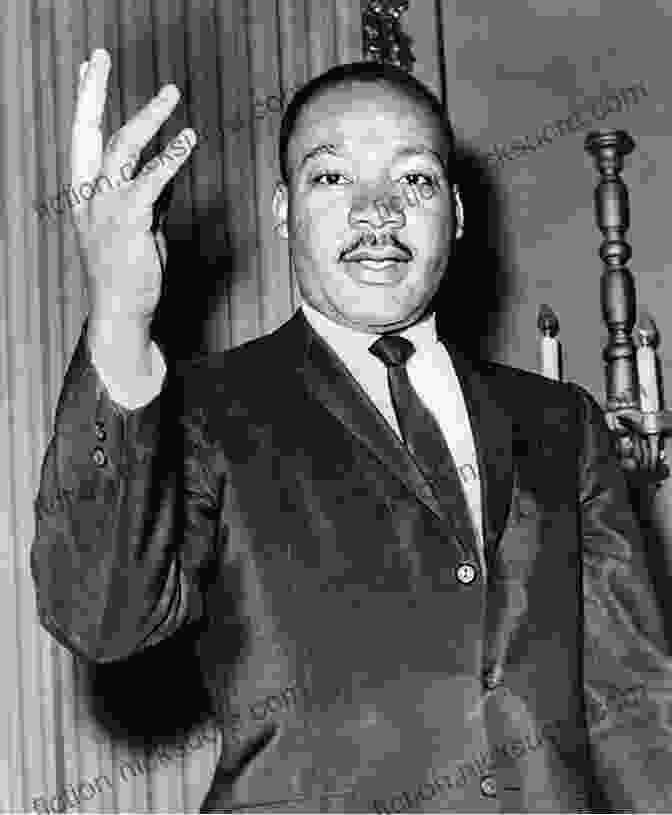 Martin Luther King Jr
Martin Luther King Jr Douglas G Altman
Douglas G Altman Will Storr
Will Storr Howard Hill
Howard Hill Anders Halverson
Anders Halverson David Crabtree
David Crabtree Andy Adams
Andy Adams Orson Scott Card
Orson Scott Card Michael W King
Michael W King Helen Palmer
Helen Palmer Al Pasha
Al Pasha Craig Childs
Craig Childs Jon Tyson
Jon Tyson Pavel Tsatsouline
Pavel Tsatsouline Jerry Robertson
Jerry Robertson Howard Greene
Howard Greene Mark Goulston
Mark Goulston Joe Berardi
Joe Berardi Kevin Hunter
Kevin Hunter Edupan7 Publishing
Edupan7 Publishing Aileen Erin
Aileen Erin James Willard Schultz
James Willard Schultz Rosemarie Anderson
Rosemarie Anderson Tonya Johnston
Tonya Johnston John Irving
John Irving Molly Absolon
Molly Absolon Clyde Fitch
Clyde Fitch Jay Annelli
Jay Annelli Andy Zipser
Andy Zipser Janice Selekman
Janice Selekman Stephanie Izard
Stephanie Izard We Fairbairn
We Fairbairn Lisa Newton
Lisa Newton Angelina Wilson
Angelina Wilson Nicholas Romanov
Nicholas Romanov Alan Murchison
Alan Murchison Frank E Harrell Jr
Frank E Harrell Jr Dean Burnett
Dean Burnett Alan E Kazdin
Alan E Kazdin Rene D Zweig
Rene D Zweig Bill Walker
Bill Walker Spencer Wells
Spencer Wells Po Bronson
Po Bronson Erica Westly
Erica Westly Al Yellon
Al Yellon Barbara Oehlberg
Barbara Oehlberg Barbara Scott
Barbara Scott Albert Einstein
Albert Einstein Gary Smith
Gary Smith William A Kaplin
William A Kaplin Robert A Sadowski
Robert A Sadowski Aja Raden
Aja Raden David Vine
David Vine James Gleick
James Gleick Martin Rooney
Martin Rooney Paul G Schempp
Paul G Schempp Thomas Kurz
Thomas Kurz Christopher Gavigan
Christopher Gavigan Harriet Brown
Harriet Brown Toby Wilkinson
Toby Wilkinson Jessica Cornwell
Jessica Cornwell Lisa Marasco
Lisa Marasco Jeremy Miles
Jeremy Miles Hammad Fozi
Hammad Fozi Lj Andrews
Lj Andrews Jack Nicklaus
Jack Nicklaus Jacqueline Tourville
Jacqueline Tourville Al Barkow
Al Barkow Yang Jwing Ming
Yang Jwing Ming Don Casey
Don Casey Howard Maxwell
Howard Maxwell Layla Moon
Layla Moon Alan Shipnuck
Alan Shipnuck Dorothy H Crawford
Dorothy H Crawford Mark Occhilupo
Mark Occhilupo Andrew Blum
Andrew Blum Shoshana Levin Fox
Shoshana Levin Fox Deitra Leonard Lowdermilk
Deitra Leonard Lowdermilk Alex Light
Alex Light George E Andrews
George E Andrews John Riley
John Riley I Johnson
I Johnson Ken Denmead
Ken Denmead Jon Emmett
Jon Emmett Morgan Lyle
Morgan Lyle Bill Friedrich
Bill Friedrich Gina Guddat
Gina Guddat Ahmed Osman
Ahmed Osman Terry L Duran
Terry L Duran G H Hardy
G H Hardy Anne Dachel
Anne Dachel Alan Porter
Alan Porter Zita West
Zita West Joe Bertagna
Joe Bertagna 12th Edition Kindle Edition
12th Edition Kindle Edition Nick Lyons
Nick Lyons Bruce J Macfadden
Bruce J Macfadden Arthur Fleischmann
Arthur Fleischmann Damon Lee
Damon Lee Dusty Rhodes
Dusty Rhodes Judy Jewell
Judy Jewell Sheila Barton
Sheila Barton Natazha Raine O Connor
Natazha Raine O Connor Gordon H Orians
Gordon H Orians Terry Breverton
Terry Breverton Pantea Kalhor
Pantea Kalhor Alice Scordato
Alice Scordato Mark Booth
Mark Booth Jonathan White
Jonathan White Katharine Graves
Katharine Graves George Buehler
George Buehler Mackenzi Lee
Mackenzi Lee Micky Ward
Micky Ward Erin Lovelace
Erin Lovelace Jacqueline Fitzpatrick
Jacqueline Fitzpatrick Jane Bottomley
Jane Bottomley Robert M Emerson
Robert M Emerson Gill Rapley
Gill Rapley Vanessa Ogle
Vanessa Ogle Helena Clare
Helena Clare Shing Tung Yau
Shing Tung Yau Olivia Gentile
Olivia Gentile Margit Ystanes
Margit Ystanes Mark Harris
Mark Harris Alan Lightman
Alan Lightman Tom Shachtman
Tom Shachtman Suze Guillaume
Suze Guillaume Jill Homer
Jill Homer Bradley Efron
Bradley Efron Larry Wasserman
Larry Wasserman Franz Metcalf
Franz Metcalf Ndeye Labadens
Ndeye Labadens Gary R Varner
Gary R Varner Lee Carroll
Lee Carroll Teresa Mccallum
Teresa Mccallum Jerry Robeson
Jerry Robeson Bill Parisi
Bill Parisi Joyce Burkhalter Flueckiger
Joyce Burkhalter Flueckiger Melinda Rushe
Melinda Rushe Michael Domican
Michael Domican Julie Bradley
Julie Bradley David F Kelly
David F Kelly Alan Gelb
Alan Gelb S Connolly
S Connolly Marc M Triola
Marc M Triola Laurie Pickard
Laurie Pickard Dmitry Zinoviev
Dmitry Zinoviev Susan B Lovejoy
Susan B Lovejoy Habeeb Quadri
Habeeb Quadri Rebekah Sack
Rebekah Sack Michael Shermer
Michael Shermer Nilakantasrinivasan J Neil
Nilakantasrinivasan J Neil Jan Smith
Jan Smith Michael Freedland
Michael Freedland Grace Lebow
Grace Lebow Sarah Hendrickx
Sarah Hendrickx Patrick O Sullivan
Patrick O Sullivan Jane Poynter
Jane Poynter Constance Classen
Constance Classen Michael Casey
Michael Casey Aileen Nielsen
Aileen Nielsen Anahad O Connor
Anahad O Connor Michael Gray
Michael Gray Billy Walsh
Billy Walsh Elizabeth Thompson
Elizabeth Thompson Lisa Kenney
Lisa Kenney Anne Enright
Anne Enright Kim Stanley Robinson
Kim Stanley Robinson Martin Erwig
Martin Erwig Graham Bower
Graham Bower George Knudson
George Knudson W E Fairbairn
W E Fairbairn David Roberts
David Roberts Joe Clement
Joe Clement Roy Dittmann
Roy Dittmann Al Desetta M A
Al Desetta M A Akil Palanisamy
Akil Palanisamy Juno Roche
Juno Roche Jeff Maynard
Jeff Maynard Princess Her
Princess Her Jackson Katz
Jackson Katz E Cheng
E Cheng Robert Macfarlane
Robert Macfarlane Theodore P Jorgensen
Theodore P Jorgensen Peg Tyre
Peg Tyre Robin Mckinley
Robin Mckinley Ged Jenkins Omar
Ged Jenkins Omar Harold Klemp
Harold Klemp Hiro Ainana
Hiro Ainana Judith Garrard
Judith Garrard Aphra Behn
Aphra Behn Antipodean Writer
Antipodean Writer Michael Sidgwick
Michael Sidgwick Cynthia Clumeck Muchnick
Cynthia Clumeck Muchnick Christopher Hellman
Christopher Hellman Isabella Morris
Isabella Morris Eden O Neill
Eden O Neill Tina Dreffin
Tina Dreffin Marcus Chown
Marcus Chown Robert E Stake
Robert E Stake Dave Heller
Dave Heller Sophia Joy
Sophia Joy Kardas Publishing
Kardas Publishing Rob Casey
Rob Casey Gavin Francis
Gavin Francis Thubten Chodron
Thubten Chodron Michael Morpurgo
Michael Morpurgo Florence Williams
Florence Williams Richard Pears
Richard Pears Lingo Mastery
Lingo Mastery S A Klopfenstein
S A Klopfenstein G E R Lloyd
G E R Lloyd Sonia Nazario
Sonia Nazario Mista Nove
Mista Nove Aidan Chambers
Aidan Chambers Kiku Hughes
Kiku Hughes Farlex International
Farlex International Stephen M Camarata
Stephen M Camarata Percy Boomer
Percy Boomer Truman Everts
Truman Everts Jay H Lefkowitch
Jay H Lefkowitch Bruce Lee
Bruce Lee Eddy Starr Ancinas
Eddy Starr Ancinas Penney Peirce
Penney Peirce Deborah Harkness
Deborah Harkness Aileen Evans
Aileen Evans Andre Agassi
Andre Agassi Hervey Garrett Smith
Hervey Garrett Smith Jonathan Gottschall
Jonathan Gottschall Chris Bowers
Chris Bowers Frances E Jensen
Frances E Jensen Rebecca Jones
Rebecca Jones Joanne Webb
Joanne Webb Pallas Snider
Pallas Snider Doug Gelbert
Doug Gelbert Contractor Education Inc
Contractor Education Inc Peter Hathaway Capstick
Peter Hathaway Capstick Takuan Soho
Takuan Soho Janet Houser
Janet Houser Nick Hughes
Nick Hughes John Feinstein
John Feinstein Amelia Mayer
Amelia Mayer Dr David Geier
Dr David Geier George M Fredrickson
George M Fredrickson Magnus Thollander
Magnus Thollander Charles J Thayer
Charles J Thayer Rand Cardwell
Rand Cardwell Carla Schroder
Carla Schroder Matt Mosher
Matt Mosher Trevor Lund
Trevor Lund Steven Trimble
Steven Trimble Lo Bosworth
Lo Bosworth Miles Mckenna
Miles Mckenna Steven H Strogatz
Steven H Strogatz Brenda Nathan
Brenda Nathan Gary B Ferngren
Gary B Ferngren Chris Vines
Chris Vines Alan Garner
Alan Garner Linda G Morris
Linda G Morris Jakob Tanner
Jakob Tanner Ken Schultz
Ken Schultz Timm Woods
Timm Woods David D Burns
David D Burns Aiva Books
Aiva Books Vishwesh Bhatt
Vishwesh Bhatt Jay Speight
Jay Speight Stephen Wolfram
Stephen Wolfram Scott Surovich
Scott Surovich Len Sperry
Len Sperry Elaine Howard Ecklund
Elaine Howard Ecklund Benjamin Johnston
Benjamin Johnston Rose Lynn Fisher
Rose Lynn Fisher Nancy Hughes
Nancy Hughes Thomas Metzinger
Thomas Metzinger Aimee Aristotelous
Aimee Aristotelous Donna Morang
Donna Morang Juliet Marillier
Juliet Marillier Amy Edelstein
Amy Edelstein Gail Tully
Gail Tully Belinda Luscombe
Belinda Luscombe Jenni Hicks
Jenni Hicks Al Roker
Al Roker Daniel C Okpara
Daniel C Okpara Dimitri Loose
Dimitri Loose Al Macy
Al Macy Vera Nazarian
Vera Nazarian James A Michener
James A Michener Satya Sundar Sethy
Satya Sundar Sethy Robert Heidler
Robert Heidler Publishdrive Edition Kindle Edition
Publishdrive Edition Kindle Edition Mark Drolsbaugh
Mark Drolsbaugh Catherine Belknap
Catherine Belknap Timothy C Smith
Timothy C Smith Gordon R Dickson
Gordon R Dickson Kate Brian
Kate Brian Mike Rothschild
Mike Rothschild Emeran Mayer
Emeran Mayer Al Marlowe
Al Marlowe Daphne Rose Kingma
Daphne Rose Kingma Collins Easy Learning
Collins Easy Learning Gayle Peterson
Gayle Peterson Celeste Jones
Celeste Jones Ron L Deal
Ron L Deal Erin Ekins
Erin Ekins Alan E Sparks
Alan E Sparks Madeline Milne
Madeline Milne Mike Martin
Mike Martin Peter Ballingall
Peter Ballingall Michal Stawicki
Michal Stawicki James Witts
James Witts Aitzaz Imtiaz
Aitzaz Imtiaz Carl Gustav Jung
Carl Gustav Jung Courtney Macavinta
Courtney Macavinta Kerstin Gier
Kerstin Gier Original Edition Kindle Edition
Original Edition Kindle Edition Michael D Rich
Michael D Rich Lauren Blackwood
Lauren Blackwood Jessica Battilana
Jessica Battilana Sir Edmund Hillary
Sir Edmund Hillary Kiersten White
Kiersten White Dan Dipiro
Dan Dipiro Roxy And Ben Dawson
Roxy And Ben Dawson Kerry Diamond
Kerry Diamond Markus Rex
Markus Rex Tim Gallagher
Tim Gallagher J Zoltan
J Zoltan Dave Whitson
Dave Whitson Linda Welters
Linda Welters Mariam N Ottimofiore
Mariam N Ottimofiore Leigh Sales
Leigh Sales Bianca Smith
Bianca Smith Clint Emerson
Clint Emerson Margaret J Wheatley
Margaret J Wheatley Josh Kilmer Purcell
Josh Kilmer Purcell Denise Alvarado
Denise Alvarado Samuel Carbaugh
Samuel Carbaugh Rick Bass
Rick Bass Andrew Rowe
Andrew Rowe Dawn Sakamoto Paiva
Dawn Sakamoto Paiva Esther Parry
Esther Parry Arnold Haultain
Arnold Haultain Matthew Mcbee
Matthew Mcbee Jay Revell
Jay Revell Sara Hanover
Sara Hanover Kevin B Shearer
Kevin B Shearer United States Government Us Marine Corps
United States Government Us Marine Corps Mary Basick
Mary Basick Alastair Humphreys
Alastair Humphreys John Leo
John Leo George Monbiot
George Monbiot Alan Hearnshaw
Alan Hearnshaw Helen Hollick
Helen Hollick Aidan Dodson
Aidan Dodson Alan Rouse
Alan Rouse Saul Rip
Saul Rip Kristine Barnett
Kristine Barnett The Rogue Hypnotist
The Rogue Hypnotist Tod E Bolsinger
Tod E Bolsinger Alana Chernila
Alana Chernila William Harding
William Harding Caitlin Zaloom
Caitlin Zaloom Robert L Kelly
Robert L Kelly Kate Bettison
Kate Bettison Lexie Scott
Lexie Scott Christos A Djonis
Christos A Djonis Bettina Gordon Wayne
Bettina Gordon Wayne Carol Tuttle
Carol Tuttle John T Hansen
John T Hansen M K Hume
M K Hume Nina Lacour
Nina Lacour Betsy Tobin
Betsy Tobin Lex Croucher
Lex Croucher Bryon Powell
Bryon Powell Mel Thompson
Mel Thompson Melissa Bashardoust
Melissa Bashardoust Hope Smith
Hope Smith Al Ristori
Al Ristori Jane P Gardner
Jane P Gardner Christopher Willard
Christopher Willard Christopher Scordo
Christopher Scordo
Light bulbAdvertise smarter! Our strategic ad space ensures maximum exposure. Reserve your spot today!

 Herman MitchellThe International Student Guide to American Colleges: Everything You Need to...
Herman MitchellThe International Student Guide to American Colleges: Everything You Need to...
 Mario BenedettiField Guide to the Future of the Earth: Through the Eyes of Storytelling and...
Mario BenedettiField Guide to the Future of the Earth: Through the Eyes of Storytelling and...
 Alexander BlairAn Apprentice Guide To Psychic Gifts, Soul Consciousness, Life Purpose, And...
Alexander BlairAn Apprentice Guide To Psychic Gifts, Soul Consciousness, Life Purpose, And... Griffin MitchellFollow ·9.4k
Griffin MitchellFollow ·9.4k Zadie SmithFollow ·15.6k
Zadie SmithFollow ·15.6k W. Somerset MaughamFollow ·14.6k
W. Somerset MaughamFollow ·14.6k Hassan CoxFollow ·4.2k
Hassan CoxFollow ·4.2k Jared NelsonFollow ·12.1k
Jared NelsonFollow ·12.1k Jeffery BellFollow ·6.8k
Jeffery BellFollow ·6.8k Dustin RichardsonFollow ·17.1k
Dustin RichardsonFollow ·17.1k Ronald SimmonsFollow ·13.9k
Ronald SimmonsFollow ·13.9k
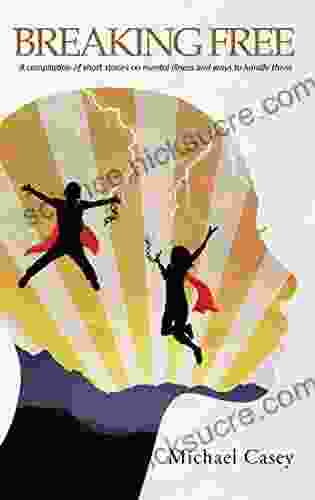
 Deacon Bell
Deacon BellCompilation of Short Stories on Mental Illness and Ways...
Mental illness is a serious issue that affects...

 Jonathan Hayes
Jonathan HayesThe Practical Guide to Raising Courageous and...
As parents, we all want...

 Carlos Fuentes
Carlos FuentesA Journey to Remember: The High Sierra Love Story of...
Prologue: A Wilderness Encounter Beneath...

 Douglas Foster
Douglas FosterEndless Conquest: Embark on an Immersive Dungeon Crawl in...
Endless Conquest is a captivating LitRPG...
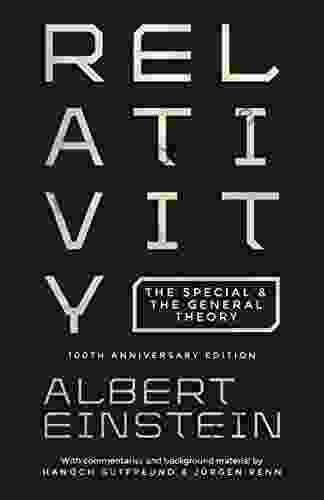
 Caleb Long
Caleb LongThe Special and the General Theory 100th Anniversary...
The year 2015 marks a...
4.5 out of 5
| Language | : | English |
| File size | : | 104195 KB |
| Text-to-Speech | : | Enabled |
| Screen Reader | : | Supported |
| Enhanced typesetting | : | Enabled |
| Word Wise | : | Enabled |
| Print length | : | 319 pages |


